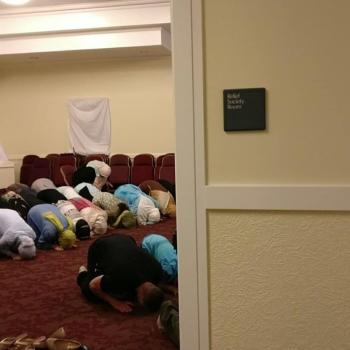
More words from my manuscript:
But we return to our investigation of words that the West has borrowed from Arabic. Several common items of Western furniture bear Arab names. The “mattress” that we sleep on, for example, was at first merely a matrah, a place where something is “thrown down.” (I suppose, then, that it is perfectly appropriate for us to “throw” ourselves on our beds.) And our “sofa,” a long, upholstered seat with raised arms at each end, is simply a softer, more comfortable version of a sulfa, a stone molding or ledge. An “Ottoman,” on the other hand, a long, upholstered seat that has neither back nor arms, recalls the name of the third caliph, Uthman. Actually, though, it refers to another individual of the same name. Uthman, or “Osman,” was also the name of the founder of the great Ottoman Turkish Empire, of whom we shall speak in a later chapter, and it was the Ottomans who favored the low “Ottoman” seat in their government offices. French and Italian diplomats in Istanbul liked it, too, and brought it back to Europe with them.
The type of seat known as a “divan” comes from the same source as the “Ottoman,” and, in fact, the two seats are rather similar. Divan derives originally from the Arabic word diwan (“registry,” “government office”), and it is related to another word that travelers to continental Europe will recognize: Upon entering France or Belgium or French Switzerland, tourists are required to pass by the customs officials at the border or in the airport. “Customs,” in French, is douane. (Amusingly, the Arabs, having given Europe one of its names for “customs,” in their turn borrowed a European word for the same institution. Sounding a little like something one of J.R.R. Tolkien’s ores or goblins might say, the ugly word gumruk, “customs,” comes from the old Latin commercium—in which the letter “c” is pronounced like our “k”.) Another governmental term that comes to us from the Arabs, one for which we are probably not entirely grateful, is tariff, from the Arabic ta’rif (“notification”).
Finally, a grab bag of word derivations: Once in a while, a particularly splendid personage, or one who wishes to be thought of as someone particularly splendid, is called a “nabob.” (Richard Nixon’s first vice president, Spiro Agnew, in a more negative vein, once referred to “the nittering nabobs of nihilism.”) The word nabob comes from the Arabic naib (nuwwab in the plural), meaning a governor of a province. (Governors were once regarded as splendid.)












